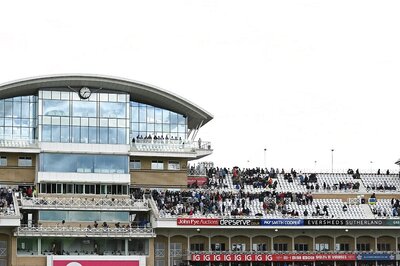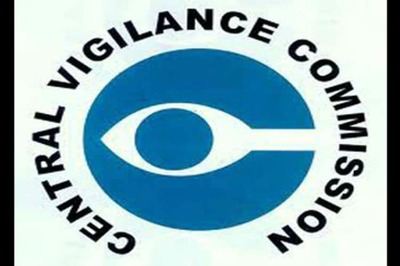
views
Moscow: Russian officials faced accusations of trying to cover up the full details of an accident on board a military submarine that killed 14 sailors, but the Kremlin on Wednesday defended its record.
The Defence Ministry said the incident took place on Monday, but it was not officially disclosed until late on Tuesday.
It said the sailors had been killed in a fire on what it described as a deep-water research submarine surveying the seabed near the Arctic. But nearly two days on there was still no word on whether the submarine had been nuclear-powered.
Some Russian media criticised what they said was a lack of transparency, and drew parallels with the dearth of official information during the meltdown of a Soviet nuclear reactor in Chernobyl in 1986.
"Absolutely nothing is known at the moment - who, what... I don't understand one thing: why did a day go by and only then did they make the statement about the deceased?" said Yevgeny Buntman, an anchor for the Ekho Moskvy radio station.
"Why don't we know their names? Is this normal?"
The Russian media outlet RBC cited an unnamed military source as saying the submarine was an AS-12, which is powered by a nuclear reactor and designed to carry out special operations at extreme depths.
That vessel, nicknamed the "Losharik", was launched in 2003 and is one of the most secret submarines in the Russian fleet.
No Abnormal Radiation
Asked on Wednesday if the vessel had a nuclear reactor on board, Kremlin spokesman Dmitry Peskov referred the question to the Defence Ministry.
He also told reporters that details of the submarine were classified, but that information had been provided in good time.
Russian state-owned media, including television channels, have reported the fire and the deaths but have avoided any criticism of the government's handling of the incident.
But the Bell, a news site often critical of the government, wrote: "Nearly a day without information about an accident in a nuclear facility and the need to look out for Norwegian statements on the level of radiation should have given a shudder to those who remember the Chernobyl nuclear power station."
Norway's Radiation and Nuclear Safety Authority (DSA) said on Wednesday it had not detected any abnormal radiation in the area and that its measures tallied with public information provided by Moscow.
The DSA has sent a formal request for information on the incident from its Russian counterpart, Norway's Foreign Ministry said.
The head of Greenpeace in Norway, Frode Pleym, urged authorities in Moscow to be fully transparent in order to "safeguard the interests both of Russia and neighbouring countries like Norway".
Monday's fire was one of the deadliest submarine accidents since August 2000, when the nuclear-powered Kursk sank to the floor of the Barents Sea, killing all 118 men aboard.
Authorities then, and in particular President Vladimir Putin, who was at the beginning of now almost two decades as president or prime minister, came under fire for their slow response and shortcomings in the rescue operation.




















Comments
0 comment